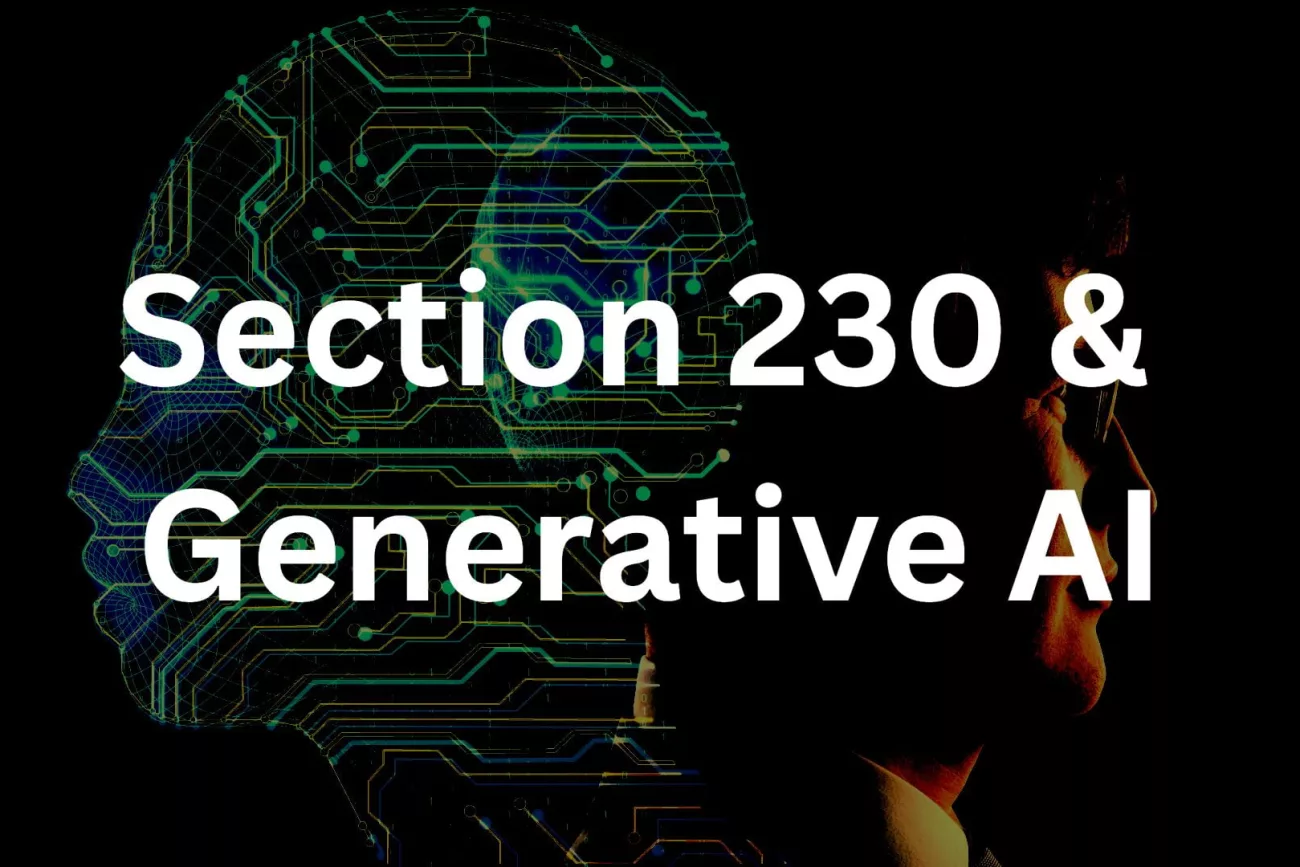
Key Points:
- AI is making a transformative impact on injury law, moving from a supporting role to a central player.
- Charles Gluckstein of Gluckstein Personal Injury Lawyers is at the forefront of integrating AI into legal practices.
- Major tech giants, including Google and Microsoft, are gearing up for intense competition in the legal tech domain.
- Despite AI’s promise, there are challenges, including overreliance, data security concerns, and the potential for oversight.
Tech, Tussles & Trials: The Intriguing Nexus of AI & Injury Law 😱🤖⚖️
Can the world of injury law, with its rich tapestry of human drama and contentious confrontations, really be upstaged? Oh, absolutely! The entrance of Artificial Intelligence onto the legal stage makes even the most heated courtroom cross-examinations look like mere opening acts. AI isn’t just making a cameo; it’s taking the starring role. It’s altering the fabric of the profession, redefining roles, and, in some cases, threatening to rewrite the script entirely. Fasten your legal briefs, folks, because the world of injury law is set to be unrecognizably revolutionized.
In light of recent buzz about a potential AI lawyer, many in the profession fear being overshadowed by technology. However, AI can be an ally rather than an adversary for legal professionals. As highlighted in a recent Canadian Lawyer article, Charles Gluckstein, managing partner of Gluckstein Personal Injury Lawyers, effectively integrates this technology to enhance the experiences of his team and clients.
The “Tech-lash” in Toga Land: Why Lawyers Can’t Afford to Be Luddites Anymore 🤓🚀
Once upon a time, in the marbled corridors of courthouses, success was measured by the weight of your law books and the depth of your legal lexicon. Lawyers, dressed in their ceremonial robes (or as we playfully dub it, ‘toga land’), reveled in traditions dating back centuries. But now? That antiquated scene is juxtaposed with AI-driven algorithms and screens projecting predictive outcomes.
Enter Charles Gluckstein, not just another lawyer in the sea of attorneys but the trailblazing titan at Gluckstein Personal Injury Lawyers. His view? This isn’t just about a technological phase. We’re not talking about mere digitization of records or the odd use of software for scheduling. No, siree! This is about an industry standing at the edge of an unprecedented seismic shift. A metamorphosis. When Charles hints at a “full-fledged eruption” of legal tech, he’s signaling a tsunami that could render the unprepared obsolete.
Generative AI: The New Overlord in Legal Tech 🤴🤖
Move over, traditional legal tools; there’s a new leader in town. Generative AI doesn’t simply assist; it transforms. We’re not talking about a tool that merely automates mundane tasks. Generative AI has the audacity to draft, predict, and even recommend legal strategies. It’s the prodigious child that can churn out content, responses, and strategies based on its rich diet of legal data.
This isn’t about making jobs redundant but amplifying the reach and efficacy of each legal practitioner. With AI’s capabilities, we’re gazing at the possibility of single lawyers doing the job of entire departments! But, as with all revolutions, there comes a need for balance and caution. As we embrace the future, the real challenge for lawyers is how to make these tools an extension of their prowess, without losing the human touch that is so intrinsic to the justice system.
Three’s Company: AI’s Trifecta in Gluckstein’s Legal Armory 🧰🤹
Charles Gluckstein, a stalwart in merging law and technology, deftly employs AI in three transformative ways: medical record summarization via Medchart, holistic project management through Filevine, and advanced legal research courtesy of Alexi.
“I’m consistently drawn to technology’s promise. My approach is to experiment with diverse programs, assessing their fit within our practice. Indeed, I integrate AI at every conceivable stage of a case,” shares Gluckstein.
Medical Mavericks:
With AI at the helm, trudging through mountains of medical data is antiquated. The AI, via tools like Medchart, transforms intricate medical records into succinct, actionable summaries. The McKinsey Global Institute estimates that such AI-driven efficiencies can save healthcare providers a staggering $300 billion annually. For Gluckstein, this means not just swiftness, but unparalleled accuracy.
Project Automation:
The project management realm, with its labyrinth of tasks, has witnessed a paradigm shift with Filevine. Beyond mere task reminders, this platform embodies a dynamic ecosystem which evolves as per real-time demands and reorders priorities, streamlining everything from client communications to intricate document analyses and report generation.
Legal Eagle:
The days of manual legal research are dwindling. Alexi and similar tools are setting the pace, crafting preliminary legal memos rapidly, building on them with cited cases, and diving deep into nuanced legal topics. Reuters reports a jaw-dropping 50% research time reduction with AI-integration in modern law firms. This isn’t about sidelining human discernment but augmenting it.
From Chatbots to Facta – Charting AI’s Ascendancy in Law 🚂💼
In the ongoing digital metamorphosis, AI stands tall as the torchbearer, transforming traditional legal processes.
Website Whisperers:
The shift is evident right from website interfaces. Advanced AI chatbots, reminiscent of IBM’s Watson, transcend typical FAQs, preempting user queries. Accenture credits such innovations for a 30% uptick in website user engagement. At Gluckstein’s firm, AI-driven chatbots streamline website navigation, while sophisticated AI tools ease client questionnaire completions, which subsequently feed into their dynamic Filevine project management system.
Document Maestros:
Document management has historically been a bottleneck for many law outfits. Enter tools like Filevine. Far from being mere repositories, they redefine communication, optimize task distribution, and supercharge marketing strategies. A study by Capterra divulges that AI-integrated systems like Filevine usher in a productivity surge, saving firms up to 10 hours weekly.
Research Revolution:
The days of sifting through legal tomes are numbered. With tools like Alexi in the arsenal, research now leverages vast databases to pinpoint relevant case laws and judgements. LegalTech News confirms that a whopping 40% of law firms now harness AI for research, enabling faster case builds, meticulous analyses, and extra bandwidth for strategizing. Gluckstein’s proactive adoption of such tools positions his practice leaps and bounds ahead in the legal vanguard.
Titans on the Horizon: The Legal Tech Arms Race 🔥🏁
In the thrilling world of legal tech, we’re witnessing an Olympian battle of innovation. Leading the pack? Renowned names such as Westlaw, Thomson Reuters, Microsoft, and the tech behemoth, Google.
Westlaw vs. The World:
The legal community, for years, has trusted Westlaw for its comprehensive case law database and insightful annotations. According to a 2019 American Bar Association report, 54% of lawyers identified Westlaw as their primary research tool. But with the AI era upon us, will brand loyalty stand the test of disruptive innovation?
Thomson Reuters – Pioneering the Present:
Thomson Reuters isn’t just about data – it’s about synthesizing information. With tools like “Answer Path”, they’re leveraging AI to understand complex legal questions and provide concise answers. In fact, a Legal Executive Institute study found that attorneys using such AI tools were able to reduce research time by nearly 30%.
Microsoft – The Dark Horse:
While not historically known for legal tech, Microsoft has been making subtle yet potent moves. With its vast cloud infrastructure and a massive R&D budget (they spent a whopping $19.3 billion in 2020), they’re poised to bring scalable, robust AI solutions tailored for legal professionals.
Google – From Search to Jurisprudence:
The search engine giant is no stranger to data analysis. With their advancements in Natural Language Processing (NLP) and their recent acquisition of DeepMind, an AI research lab, Google might just rewrite the script of legal research. Imagine asking Google Assistant about a case precedent and receiving a nuanced legal perspective in return.
While each titan brings its strength to the fore, the real winner will be the legal community, as they’re set to gain access to tools that are not just efficient but downright revolutionary.
Don’t Be Hoodwinked! The Dark Side of Generative AI 🌒🔍
With great power comes great responsibility. As Spider-Man’s uncle wisely said, this aphorism holds especially true for the rising power of generative AI in the legal world.
Deceptive Precision:
It’s tempting to believe every data point that AI spews out, given its complex algorithms and data processing prowess. But consider this: according to a study by the MIT Media Lab, AI models can sometimes be overconfident in their predictions, leading to misleading results. When the stakes are high in legal cases, can we afford such overconfidence?
The Open-source Quagmire:
While open-source platforms have democratized AI innovation, they also come with a significant downside: data privacy. According to Cybersecurity Ventures, cybercrime damages might hit $6 trillion annually by 2024. When using AI platforms built on open-source models, legal professionals risk exposing sensitive information to the vast ocean of data, potentially accessible by malevolent actors.
False Comfort Zone:
There’s no denying that AI can speed up numerous tasks. But there’s a hidden cost. A report from the Stanford Center for Legal Informatics suggests that relying too heavily on AI may lead to overestimation of its capabilities. Lawyers might believe they’ve covered all bases, only to discover overlooked nuances during critical case moments.
Gluckstein’s advice? Embrace the future but tread cautiously. AI is a potent ally, but like every tool, it’s only as effective as its wielder.
Will Robot Lawyers Replace You? The Million-Dollar Question 💼🤖
The question that is frequently whispered in the hallowed halls of law firms across the country: will the rise of AI render lawyers obsolete? Goldman Sachs has made a bold statement forecasting that AI possesses the potential to automate nearly 50% of all legal tasks in the US. This has naturally sparked intense debates and nervous coffee chats amongst the legal community.
Yet, an intriguing observation stands out. While many industries reel under the rapid AI proliferation, Gluckstein’s recruitment graph hasn’t shown any dramatic dips. What’s their secret?
Punching Above Their Weight:
AI platforms, like the renowned Alexi, are empowering lawyers to redefine their limits. Gone are the days when exhaustive legal endeavors required an army of lawyers burning the midnight oil. Today, AI has made it possible for a lean team to tackle complex cases, enabling them to accomplish tasks previously considered insurmountable.
Delegation Dynamics:
Articling students, once buried under a pile of paperwork and repetitive tasks, are witnessing a seismic shift in their day-to-day responsibilities. With the AI handling much of the heavy lifting, these budding legal minds can now redirect their energies. This means investing time in critical thinking, strategy formulation, and engaging more directly with clients – essentially, tasks that truly matter.
Tech Goals:
AI’s integration into the legal world isn’t merely about automating tasks; it’s about supercharging the entire process. From achieving higher productivity rates to ensuring rapid case turnovers, AI systems offer a competitive edge. Not to mention, the invaluable benefit of enhanced decision-making capacities, which often doubles with the infusion of AI-driven insights.
The Ultimate Verdict: AI – A Foe or Ally? 🎯
The contemplative silence that pervades courtrooms often echoes with a silent question – is technology an adversary or a partner? The perspective of Gluckstein offers clarity. They passionately argue that the advent of technology, especially AI, is not about minimizing the workforce. Instead, it’s about amplifying the capabilities of every individual. In their words, technology aims to bolster the strength of each member, transforming them into a force to be reckoned with. The essence is simple: It’s not about reducing hands on deck, but about supercharging each hand to deliver unparalleled results.
📢 Hungry for more insights into the confluence of law and technology? 🔥📩
Delve into the intricate weave of legal tech by subscribing to our exclusive newsletter. Engage in enriching debates, foster discussions, and always remain a step ahead in this fast-evolving domain. The legal landscape is undergoing a radical transformation. Ensure you’re not just witnessing the change but actively shaping it. Join our community and be at the vanguard of this legal-tech revolution. Sign up today!
Share this post
Frequently Asked Questions (FAQs)
Q: What role is AI playing in the world of injury law?
A: AI is revolutionizing injury law by automating tasks, predicting outcomes, and redefining traditional legal processes.
and academic integrity.
Q: How is Gluckstein Personal Injury Lawyers utilizing AI?
A: Charles Gluckstein integrates AI in three ways: medical record summarization, project management, and advanced legal research.
Q: Which tech giants are at the forefront of the legal tech innovation?
A: Renowned names include Westlaw, Thomson Reuters, Microsoft, and Google.
Q: Are there concerns about the over-reliance on Generative AI in law?
A: Yes, issues include potential overconfidence in AI predictions, data privacy concerns, and overlooking nuanced legal details.
Q: Will AI replace lawyers?
A: While AI can automate many tasks, the essence lies in amplifying individual capabilities, not replacing them. express concerns over its ethical implications and potential misuse.














